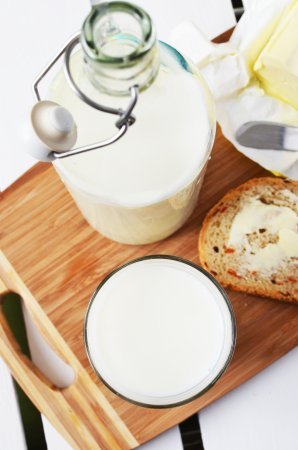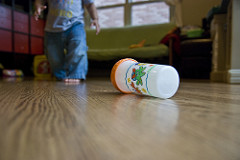
There is a difference between having food preferences, favorite foods, and having an addictive-like preference for certain foods.
Most often these addictive-like behaviors are associated with dairy or wheat: Milk, cheese, yogurt, crackers, bread, grilled cheese, cookies, chips, pasta.
Mainstream medicine is starting to catch on that this is real, though ‘autism moms’ have known this for years. The DSM-V has new guidelines on avoidant/restrictive eating disorders, and acknowledge that it is a real medical diagnosis now. (source)
We’re going to look a little more into how this works, and what we can do about it.
What’s the difference between preferences, picky eating, and addictive-like behavior?
Friendly reminder: I’m a mom, not a medical professional. I’m active in our special needs community both online and where we live, so I hear a lot about eating ‘issues’ that even the professionals can’t figure out. This is my take on it. It is not medical advice, it is my speculation. Please do not change your child’s diet without consulting with a qualified medical professional.
Preferences are mild and will not cause a meltdown or prolonged distress in the child. My children enjoy quesadillas, peanut butter and jelly sandwiches, and milk with dinner, but if they don’t get it, it doesn’t change our evening. There is no food that they ‘need’ to eat every day, and feel like they’re missing if they don’t have it. They also ‘don’t like’ potatoes or tomatoes, but if they’re looking forward to going to the monster truck show at the fair, you can bet those baked potatoes are gone in no time.
Picky eating is when a child’s, or adult’s, dietary choices are limiting their ability to eat a balanced diet, are preventing them from enjoying social activities that center around food because they absolutely refuse to eat food other than a few specific foods. You can learn more about picky eating in this free webinar (No, it’s not a parenting issue- stop feeling guilty if your child is picky).
Addictive-like behavior is when a child (or adult) experiences withdrawals when a certain food is not supplied. I’m like this with coffee. I make coffee first thing every morning, and I get a headache and have low energy if I don’t get it. Most commonly I’ve seen children have addictive-like behavior with milk. Gluten can do the same thing, but gluten is so common that it’s less likely to be noticeable until you take it away.
A tell-tail sign of addictive-like behavior is if you find yourself making a run to the gas station for milk in the middle of the night because your child absolutely cannot sleep without a cup of milk and has been crying for it since 8:00 PM. You thought eventually they would go to sleep, understanding that you ran out and would be able to get some tomorrow. They didn’t.
What is making them addicted?
The molecules gluten and/or casein (the proteins found in wheat and dairy) are having a opioid-like effect on their brain (source). What is an opioid-like effect? It’s like being on morphine. Very addicting.
When the gut is not populated well with healthy bacteria, or it is damaged for some reason, these food molecules get through the gut wall and into the bloodstream before they are properly digested. Then through the bloodstream, they make their way to the brain, just as morphine would if it was taken in pill form.
This may explain the ‘brain fog’ that children with autism and developmental delays appear to have. The lack of eye contact, the inability to learn how their peers learn, the repetitive behaviors- it all is very similar to a person who is on heroin (morphine).
I think my child is addicted. Now what?
I talk about this in the picky eating solution, but for a brief overview:
- Pull the ‘less addictive’ substance first. If your child requires a sippy cup of milk at all times, first switch to being gluten-free. If they only eat sandwiches or pasta for all meals, take away the dairy first. By taking away the one that they’re less addicted to, their gut will start to heal, and they will be less resistant to cutting out the other food.
- After 3-5 days, start to reduce the amount of the remaining food (gluten or dairy) by watering down milk or diluting it with almond or coconut milk slowly, and only allowing gluten at certain times a day, less and less, until it’s gone.
- Keeping strict gluten free/casein free for a week.
- Work to heal the gut. When the gut is healed, these foods will stop having this affect on the children. Having a reaction like this to foods is sign of a leaky gut. I followed the GAPS diet with my family to heal our gut, you can read more here.
- Sign up here for a free 30-day checklist to help you detoxify your home, increase gut-healing foods, and decrease stressers on the body. It’s an attainable step-by-step plan to help you help your family heal.
- After 6 months to a year of gut healing, we were able to eat all sorts of foods again. We do continue to eat mostly grain free, though, because it helps keep us healthy.
This post came from answering questions that moms have had about The Picky Eating Solution. As a mom, I know that it’s more than just a parenting issue. The Picky Eating Solution follows a holistic plan to turn picky eating around – and it is very effective! If you suspect your child’s picky eating is something more than just a temporary phase, I would encourage you to check out the free webinar here.
Webinar for Parents of Picky Kids: The Picky Eating Solution
Are you concerned that your child has a limited diet?
Does trying to trick them or outlast them not work?
I'm going to show you how you can turn around picky eating in UNDER a week using foods that your children already like!
Sign up below to save your seat and get the free cheat sheet immediately: The 10 Most Accepted Foods that will Help Cure Picky Eating (I'll explain more in the webinar)
* Watch immediately, link will be emailed to you.



Do you recommend avoiding raw dairy as well? Is it the casein in raw milk that is still a problem?
Thanks!
I do for kids with autism and/or addiction issues. I took my daughter off raw dairy to heal her gut, and within a year she was able to tolerate it again.
My husband and I drank raw cow’s milk for its digestive health benefits for about 3 years. Early in October, 2015, he and a dozen others in SW Idaho got a horrendous campylobacter infection from a bad batch of it and that led to Guillain-Barré Syndrome (GBS). He’s been in the hospital since October 15th, nearly completely paralysed. He was one of the lucky ones. He lost his ability to swallow but never had to be on a respirator. He is now able to walk and feed himself but still needs help standing, sitting, getting in & out of bed. Now we’re both afraid to consume raw milk products. Is there any way milk can be treated without pasteurization or chemicals so that the healthy enzymes remain?
We are having some serious addictive-like behavior associated with food in my 13 year old son. I had to lock all my kitchen cupboards starting about 4 years ago because he would sneak out of bed and eat 2 boxes of cereal or 3 bags of marshmallows in the middle of the night. We started the GAPS diet as a family a year ago to support him and did the intro part over the summer with I had the most control over his diet, but he constantly sneaks food when he is out of the house so I’m not sure any real healing has been done. My house only has safe food, but I still have to lock up GAPS treats. This week he stole my key and ate 35 strips of fruit leather in the 30 minutes I was gone. We spoke to a therapist and he thinks I’m loony toons for restricting food at all. I’m at a loss of what to do next. Any advice?
Hmm, at 13 that’s tough! If it helps anything, both my brother and I had behavior like that when we were growing up, and it wasn’t really an addiction issue, it was a ‘becoming independent’ issue. Depending on why he’s on GAPS, I might not try to fight this battle. The older the kids are, the more you really do need their cooperation to do dietary intervention.
I have a 7 yr old son who has been addicted to food (and he’s been through the GAPS diet several times). When things got really stressful at school this school year (older boys bullying), he started to steal and lie about taking and eating food. At one point I even figured out that he was the mysterious thief at school–he was stealing and eating three siblings’ peanut butter sandwiches! By the time I figured it out, he had done it three times. Since I and another son of mine had been to Intense Trauma Therapy, we took him for some traumas he had experienced earlier in his life (might seem minor to others, but the body experiences as a trauma). The week of therapy actually healed him of the obsession with food, but he’s still the one that loves to eat! My point is that for my son there was underlying reason, and he was using the food as his comfort. Maybe our experience can give you insight into your own situation. And if not, I hope you figure something out to help!
Thanks for sharing :) I agree, underlying trauma and emotional issues CAN for sure cause stress in the body and leaky gut too. Sometimes it’s leaky gut causing anxiety-like symptoms, sometimes it’s trauma/emotions causing leaky gut. There’s never a one-size-fits-all, is there?
Really. RAW dairy saved my life. I have celiac/hashimoto’s disease and back in the day when I was told to stay away from dairy my instincts told me NO. I felt if God made it and it was grass-fed it had to help me heal. I must admit that I did crave it initially and I believe it was because my body/brain recognized the health benefits I was getting from drinking it otherwise I think I would have starved to death.There was not much I could eat when I was diagnosed. Pasteurized dairy absolutely kills me..however…fermented raw milk (kefir) was a miracle for me. Where is the actual science/studies/references behind this opiod addiction?
I cited my sources within the post :) Also, not everyone has an opioid addiction to dairy! We eat dairy now, but it used to cause issues with my oldest.